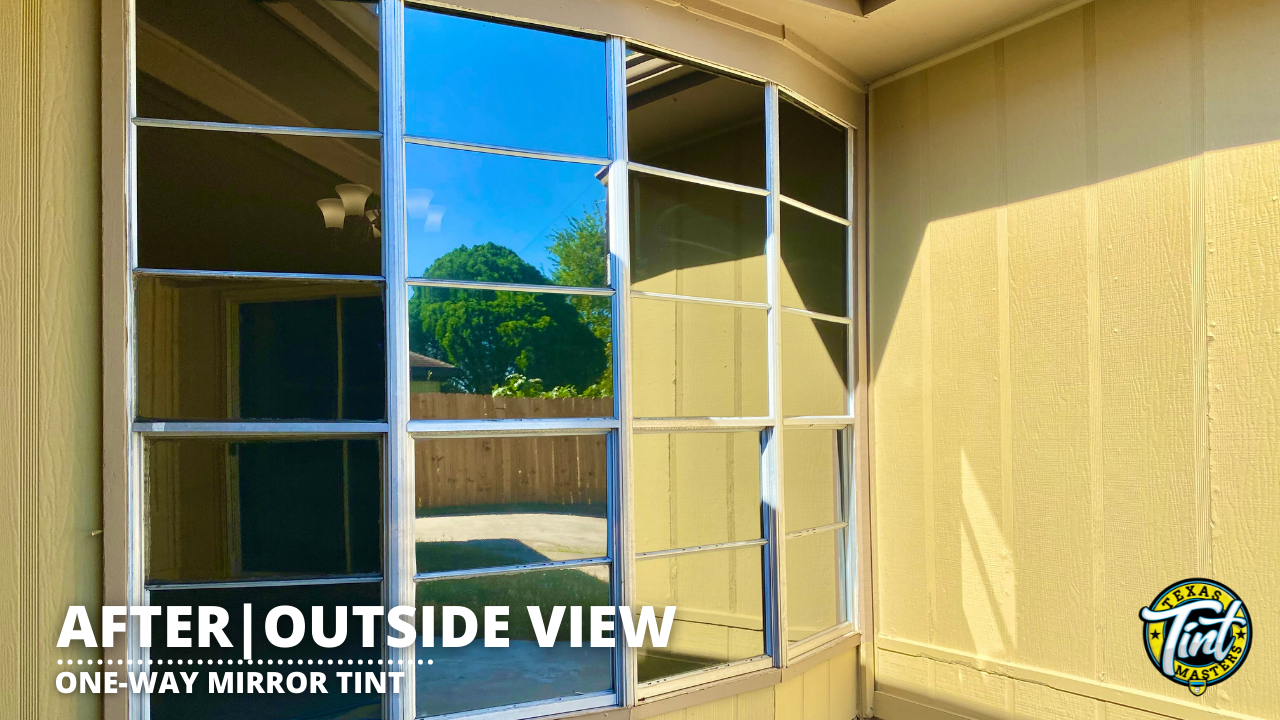Upgrade Your Home with Expert Residential Window Tint Providers
Upgrade Your Home with Expert Residential Window Tint Providers
Blog Article
How Residential Window Tinting Enhances Your Home's Energy Performance
Residential home window tinting offers an engaging remedy for home owners seeking to improve energy efficiency within their living areas. By using specialized films to windows, it successfully minimizes heat transfer, therefore supporting indoor temperature levels and minimizing the requirement for extreme heating or cooling.
Comprehending Window Tinting
Recognizing window tinting is essential for property owners looking for to improve both convenience and energy effectiveness in their space. Residential Window Tint. Home window tinting involves the application of a slim film to the inside or exterior surface of glass home windows. This movie can dramatically modulate the amount of sunlight and heat that goes into a home, hence influencing interior environment conditions
There are various sorts of window tinting films available, each with distinct homes. Dyed movies soak up solar energy, while reflective movies deflect it away from the glass surface. Ceramic films provide a balance of visibility and heat rejection, making them a preferred selection among home owners. The effectiveness of window tinting is commonly determined by its Visible Light Transmission (VLT) percent, which shows just how much light can travel through the film.
Advantages of Power Efficiency
Window tinting not just improves visual appeals yet also plays a substantial duty in boosting power performance within residential areas. By decreasing warm transfer with home windows, tinted movies produce an extra secure interior environment, which can result in substantial reductions in power usage for heating & cooling. This power effectiveness translates right into reduced energy bills, supplying homeowners with significant lasting cost savings.

Furthermore, window tinting enhances the comfort of living spaces. By lessening glow and blocking harmful UV rays, tinted home windows develop an even more pleasurable atmosphere, which can lead to improved wellness for residents. The defense against UV rays likewise assists maintain furnishings and floor covering from fading, adding to the long life of household things.
How Tinting Works
Tinting films operate via a combination of advanced materials and modern technologies developed to manage the quantity of solar power entering a home. Mainly composed of polyester, these movies commonly include metallic or ceramic particles that soak up and mirror warmth. This dual capacity allows them to considerably minimize the infiltration of ultraviolet (UV) rays and infrared radiation while allowing noticeable light to pass through.
The effectiveness of home window tinting is gauged by its solar warmth gain coefficient (SHGC), which shows just how much solar power is sent through the window. Lower SHGC values are better as they signify better heat being rejected. In addition, window colors can include a range of shades, allowing house owners to tailor their aesthetic preferences while enhancing energy effectiveness.
Furthermore, these movies act as an obstacle, stopping warmth loss during cooler months by mirroring indoor warmth back into the space. This thermal insulation result enhances the cooling advantages acquired throughout warmer months, adding to a well balanced indoor climate year-round. By handling solar power efficiently, look at this website domestic window tinting not only improves convenience but also plays a crucial role in lowering energy intake and lowering energy bills.
Choosing the Right Color

There are various kinds of home window films available, consisting of dyed, metalized, and ceramic. Colored films are affordable yet might have limited toughness. Metalized films provide far better warmth rejection but can hinder electronic signals. Ceramic movies give exceptional warm control without compromising exposure and are extremely sturdy, making them a preferred choice.
Noticeable light transmission (VLT) is one more important factor, as it suggests the amount of natural light that can go through the colored glass. Home owners need to pick a color with a VLT that enhances their lights choices while visit this web-site still providing adequate glare decrease.
In addition, analyzing the solar warmth gain coefficient (SHGC) can aid establish just how well a color can obstruct warm from sunlight. A lower SHGC indicates better warmth control, inevitably boosting power performance.
Setup and Maintenance Tips
Proper installment and maintenance are crucial components in optimizing the benefits of property home window tinting. Experts additionally use specialized devices and strategies, which can enhance the toughness and effectiveness of the color.
Complying with installment, upkeep is vital to extend the life of the home window movie. It is advised to wait at least 30 days before cleaning the colored home windows to permit the glue to heal fully.
Resolving these concerns immediately can stop additional damage and maintain power effectiveness. By sticking to these setup and maintenance tips, homeowners can guarantee their home window tinting continues to offer significant energy financial savings and comfort for years to come.
Conclusion
In conclusion, residential window tinting functions as an efficient option for improving power effectiveness within homes. By decreasing heat transfer and blocking damaging UV rays, window movies contribute to lower power consumption and improved interior comfort. The option of suitable tinting products, together with proper installment and maintenance, even more optimizes these benefits. Eventually, home window tinting represents a sustainable financial investment that not only decreases utility expenses but likewise advertises a comfortable living setting throughout the year.
Window tinting includes the application of a slim movie to the interior or exterior surface area of glass home windows. By reducing heat transfer with home windows, find more info colored films create a much more secure interior climate, which can lead to considerable decreases in power intake for home heating and cooling.The efficiency of window tinting is determined by its solar warmth gain coefficient (SHGC), which shows how much solar energy is transferred with the home window. By handling solar power properly, residential window tinting not only enhances comfort but likewise plays a crucial function in minimizing power usage and reducing energy expenses.
By minimizing warm transfer and obstructing unsafe UV rays, home window movies add to reduce energy usage and enhanced indoor comfort.
Report this page